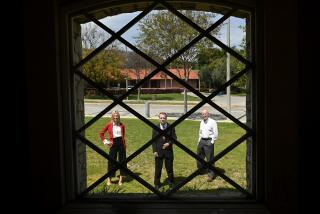Readers React: CEQA abuse, not corruption, held up Hollywood project
To the editor: The impression that Robert P. Silverstein gives is that he has successfully challenged three projects in Hollywood because the system is corrupt, resulting in judges rejecting these projects. (“Patt Morrison Asks: Robert P. Silverstein, the man who stopped a Target,” Op-Ed, Oct. 13)
In reality, what happens is that attorneys try to pick apart complicated, lengthy environmental impact reports that developers are required to file. They challenge as many points as they can and hope that at least one or two of these technical issues will prompt a judge to stop a project.
If a challenge is successful, the judge usually orders revisions to be brought back for approval. The attorneys hope the delays they cause will eventually kill a project. They usually make their challenges under the California Environmental Quality Act.
The Sunset-Gordon project, for example, was going to be the city’s first workforce housing for middle-income people. In his original lawsuit, Silverstein lost in every court, but he managed to drag out the process for two years. The original developer couldn’t hold out; eventually, another developer came on board, but the project was no longer financially viable as workforce housing — a real loss for the community.
Attorneys who feel they have strong cases to make against projects should have no problem with CEQA reform that reasonably limits the length of time allowed to consider a challenge. That way, decisions can be made on the merits of an issue, not on legal maneuvers and delay tactics.
Leron Gubler, Hollywood
The writer is president and chief executive of the Hollywood Chamber of Commerce.
Follow the Opinion section on Twitter @latimesopinion and Facebook
More to Read
A cure for the common opinion
Get thought-provoking perspectives with our weekly newsletter.
You may occasionally receive promotional content from the Los Angeles Times.






